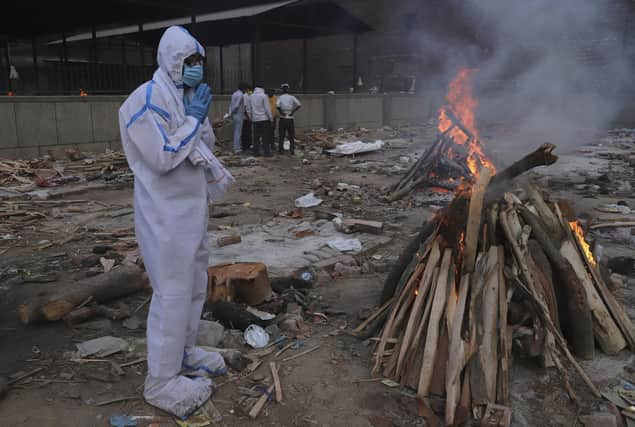Coronavirus: Scale of global pandemic 'could have been prevented' and WHO could have sounded alarm sooner, says independent covid panel


The Independent Panel for Pandemic Preparedness and Response (IPPPR) said a "toxic cocktail" of hesitancy and poor coordination meant warning signs went unheeded.
Institutions "failed to protect people" and some country leaders eroded public trust in health interventions, the IPPPR said in its long-awaited final report.
Advertisement
Hide AdAdvertisement
Hide AdIt said early responses to the outbreak detected in Wuhan, China in December 2019 "lacked urgency", with February 2020 a "lost month" as countries failed to heed the alarm.
Covid-19 has so far killed at least 3.3 million worldwide and devastated the global economy.
The report was requested by World Health Organization (WHO) member states last May.
The panel was jointly chaired by former New Zealand prime minister Helen Clark and former Liberian president Ellen Johnson Sirleaf.
The report, "Covid-19: Make it the Last Pandemic", argues that the global alarm system needs overhauling to prevent a similar catastrophe happening again.
"The situation we find ourselves in today could have been prevented," said President Sirleaf.
"It is due to a myriad of failures, gaps and delays in preparedness and response."
The report said the emergence of Covid-19 was characterised by a mixture of "some early and rapid action, but also by delay, hesitation, and denial.
Advertisement
Hide AdAdvertisement
Hide Ad"Poor strategic choices, unwillingness to tackle inequalities and an uncoordinated system created a toxic cocktail which allowed the pandemic to turn into a catastrophic human crisis."
The threat of a pandemic had been overlooked and countries were unprepared to deal with one, the report found.
The panel also said the WHO could have declared the situation a Public Health Emergency of International Concern (PHEIC) – its highest level of alarm – on January 22, 2020.
Instead, it waited eight more days before doing so.
However, Clark said, given countries' relative inaction, "we might still have ended up in the same place."
The panel made several recommendations on how to address the current pandemic.
To tackle the crisis, it called on the richest countries to donate a billion vaccine doses to the poorest.
To tackle future outbreaks and pandemics, the panel called for a Global Health Threats Council made up of world leaders, plus a pandemic convention.
A message from the Editor:
Thank you for reading this article. We're more reliant on your support than ever as the shift in consumer habits brought about by Coronavirus impacts our advertisers.
If you haven't already, please consider supporting our trusted, fact-checked journalism by taking out a digital subscription.
Comments
Want to join the conversation? Please or to comment on this article.
